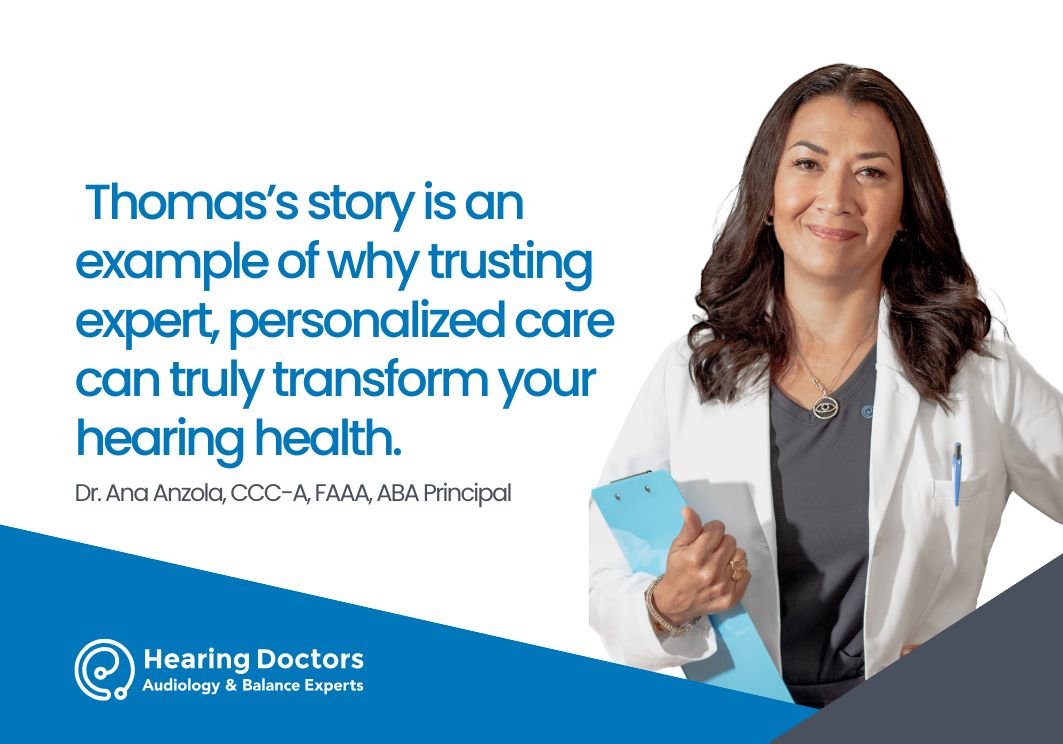Oct 6, 2016
Dr. Ana
Anzola, CCC-A, FAAA, ABA Principal
The Centers for Disease Control and Prevention (CDC) estimates that 1.4 out of every 1000 babies will have a hearing impairment. But the actual number may be even higher because not all babies are tested, and not all positive results are reported. Fifty to sixty percent of babies with hearing loss are genetically predisposed to a hearing impairment, and 20 percent of those children have a syndrome that contributes to the hearing loss, such as Down Syndrome.
Most Newborns Are Tested
Almost all babies in the United States undergo a newborn hearing screening before they are a month old. If a baby doesn’t pass the screening, they are referred to a Pediatric Audiologist for a diagnostic evaluation, which contains seven distinct components:
1. Case History Documentation
The Pediatric Audiologist collects information on family medical history, any unique conditions that occurred during pregnancy, and complications during labor or delivery. This helps the audiologist determine if conditions exist which put the infant at higher risk for hearing loss.
2. Auditory Brainstem Response (ABR)
ABR testing gives the Pediatric Audiologist information about the infant’s inner ear and auditory nerve. In children who are too young for behavioral testing, the ABR test is the best predictor of hearing loss, providing information on the type, degree and configuration of hearing loss. This information helps the audiologist formulate the best treatment approach for the infant.
3. Auditory Steady State Response (ASSR)
ASSR testing provides information on the frequencyrange of the hearing loss in an infant, giving the Pediatric Audiologist more accurate data to use when fitting a child with hearing aids or cochlear implants.
4. Otoacoustic Emissions (OAE)
OAEs are low-intensity sounds emitted by the cochlea in a healthy ear. When there is a problem with the cochlea, OAEs may not be present. Testing for OAEs gives Pediatric Audiologists another way to measure if hearing loss exists, and what structure may be the cause of the impairment.
5. Tympanometry
Tympanometry uses air pressure in the ear canal to test the condition of the middle ear, the mobility of the eardrum and how well the middle ear bones conduct sound. The small, soft ear canals of babies younger than six months can skew the result of this test, so these infants are tested with a smaller, high frequency probe to ensure accurate results.
6. Behavioral Audiometry
When children are older, part of their hearing test is based on their behavior and reaction to sounds. The Pediatric Audiologist uses audiometric testing to determine the lowest threshold of sound the child responds to.
7. Audiological Monitoring
Audiological monitoring is normally recommended for children who have hearing loss only in one ear, mild hearing loss or chronic conductive hearing loss. Monitoring is also important for children who are at risk for progressive or delayed-onset hearing loss. Consistent monitoring of their hearing and auditory development milestones gives Pediatric Audiologists a path for treatment as the child grows.
If you have a child in your life that you suspect may have a hearing impairment, bring them in to visit a Pediatric Audiologist today. Proper testing, diagnosis and treatment will help the child connect to the people and world around them, and help prevent speech and language delays.
Popular Blogs

Feb 18, 2026
Dr. Ana
Anzola, CCC-A, FAAA, ABA Principal
Success With Hearing Aids: Mary’s Story

Jan 22, 2026
Dr. Ana
Anzola, CCC-A, FAAA, ABA Principal
Why Waiting on Hearing Loss Is the Biggest Mistake I See

Jan 19, 2026
Dr. Ana
Anzola, CCC-A, FAAA, ABA Principal
How Hearing Aids Improved Clarity and Transformed Shanna’s Daily Life

Dec 8, 2025
Dr. Ana
Anzola, CCC-A, FAAA, ABA Principal
Why Thomas Trusts Hearing Doctors: “Having Doctors Behind the Recommendations Matters”


